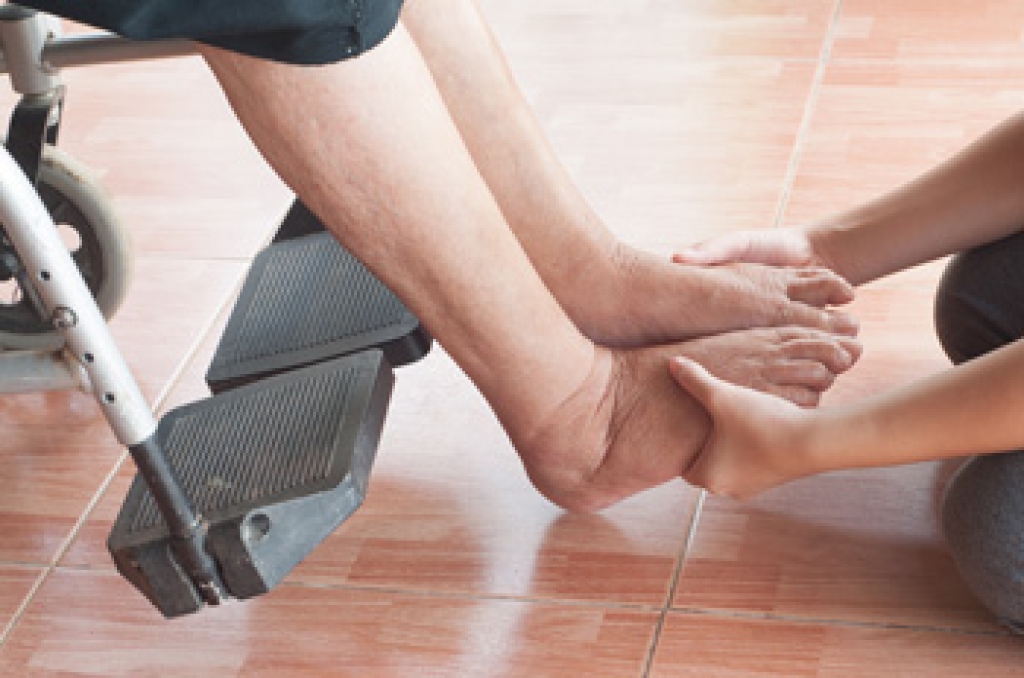 Running and walking are both excellent forms of exercise. Both are usually done while wearing sneakers, but did you know that there are different types of sneakers? Running shoes are specifically designed for running. They have more cushioning, tend to be the most flexible at the arch or midfoot and have a higher heel height. Walking shoes are usually less cushioned, less flexible, and have a lower heel. Walking shoes are also usually harder to find in stores. While you can certainly walk in running shoes, doing the opposite — running in walking shoes — is not a great idea, as walking shoes lack the cushioning and flexibility needed to support the feet as they hit the pavement. For more information about the differences between walking and running shoes, and how to find the best shoes for you, please consult with a chiropodist.
Running and walking are both excellent forms of exercise. Both are usually done while wearing sneakers, but did you know that there are different types of sneakers? Running shoes are specifically designed for running. They have more cushioning, tend to be the most flexible at the arch or midfoot and have a higher heel height. Walking shoes are usually less cushioned, less flexible, and have a lower heel. Walking shoes are also usually harder to find in stores. While you can certainly walk in running shoes, doing the opposite — running in walking shoes — is not a great idea, as walking shoes lack the cushioning and flexibility needed to support the feet as they hit the pavement. For more information about the differences between walking and running shoes, and how to find the best shoes for you, please consult with a chiropodist.
Finding the right shoes can sometimes be a major hassle, especially if you intend to work out in them. There are shoes on the market designed specifically for running and walking, but it can be difficult to differentiate between the two and find the right shoes for you. If you’re having trouble finding the right shoes, please consult with one of our chiropodists from West Toronto Foot & Ankle Clinic Inc. . Our chiropodist can help you maintain the health of your lower limbs and your mobility.
What are the differences between running and walking shoes?
These two types of shoes vary along several parameters.
- Cushioning: Runners need more cushioning in the heel and forefoot areas of the shoe, while walkers can get away with less cushioning.
- Heel height: Runners need a higher heel to provide them with stability, but the ideal height of the heel for runners varies depending on their running gait. Walkers generally don’t need a built-up heel.
- Heel flare: Flared heels can help provide extra stability for runners with certain gaits, while walkers may benefit from a flared heel to control the motion of their foot.
- Flexibility: Both runners and walkers need shoes that are flexible.
For more information about the differences between walking and running shoes, and to figure out which shoes may be right for you, please consult with a chiropodist. If you have any questions please feel free to contact our office located in Toronto, ON .


 Caring for our feet
Caring for our feet
